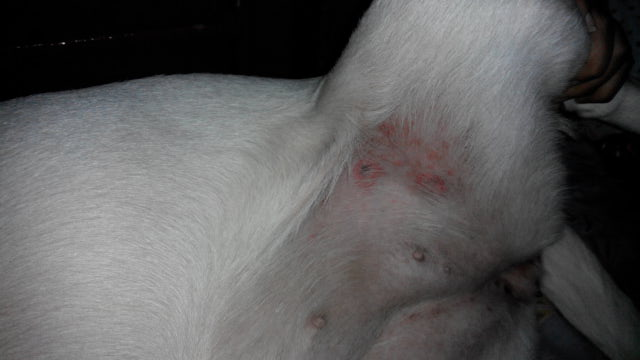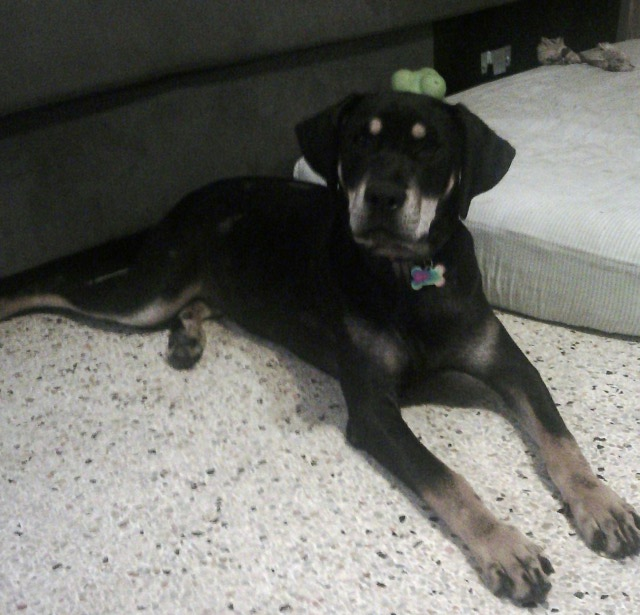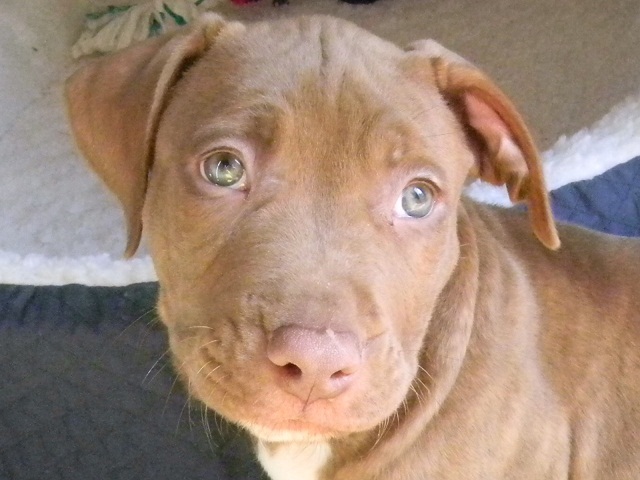QuestionI have a male chihuahua he is 6 1/2 months, he has always walked with a little swing in his back right leg, but all of sudden its popping outward at the hip and he carries it up in the air sometimes, but has never shown any kind of pain in it?? it is really obivious now? should I be concerned? I am thinking it should be hurting him if is dislocated right? he has never jumped up on the bed or the furniture could this be a birth defect?
any help would be greatly appreciated.
AnswerTrish,
I am concerned the condition your dog is displaying is related to a problem called Luxated Patella, (slipped stifle or displaced knees). The stifle is the joint of the hind leg between the femur and the tibia. The stifle joint of the dog corresponds to the knee joint of the human. The patella, the kneecap, is a small rounded bone normally located at the front of the stifle. The patella is held in position by ligaments and by the bony structure of the joint itself. When the patella is not in the correct position, it is said to be luxated. Congenital malformations of the bones of the stifle may cause the patella to be displaced from its correct position at the front of the joint, usually to an abnormal medial position toward the inner surface of the joint. Some conditions can occur in several degrees of severity. Breeders know these conditions as "slipped stifle".
Malformations that result in permanently luxated patellae are commonly inherited in some of the small and toy breeds of dogs. The hind leg of the puppies that inherit this condition are normal at birth, but the structures that should hold the patellae in the place are not properly formed. When the puppies begin to walk, their kneecaps slip toward the inside of their stifle joints. The patellae of the dogs with this condition remain in the abnormal medially luxated position. In many cases both legs are affected equally. The condition is painless to puppies, and usually needs no treatment. However, as the dog ages it may suffer from arthritic problems in their stifles.
Some small and toy dogs may inherit a degree of slipped stifle that is not the same as those with permanent luxations. These dogs are born with joints in which the patella is not stable and can slip in and out of the correct position. In these dogs the patella does not remain fixed in the abnormal position. This condition is intermittent but may become permanent. Often one leg is affected more severely than the other. Dogs with an intermittent slipped stifle will often walk on three legs and carry the painful leg in a flexed position. Joint surgery may be used to correct intermittent luxated patellae, but since the condition is inherited, all dogs with this condition should be neutered, so as not to pass this condition onto future generations.
The administration of NSAIDS (nonsterodial anti-inflammatory drugs, as painkillers or anti-inflammatory agents is seldom indicated, as these drugs have only a temporary effect. Drugs may reduce the pain, but they will not cause the patella to be come more stable. Surgery is the only effective treatment for the condition. I recommend you schedule an appointment with his regular veterinarian to have radiographs taken and to determine if this in fact the problem. I hope this offers some insight. Please feel free to get back to me with any additional questions or concerns.
Jodi

 Live worms came out in my dogs poop and he has some rashes?
Question
The Rashes
She is 15 months old and is
Live worms came out in my dogs poop and he has some rashes?
Question
The Rashes
She is 15 months old and is
 Dog aggression towards puppy
Question
The father and his pup
My older dog is an Amer
Dog aggression towards puppy
Question
The father and his pup
My older dog is an Amer
 weird hair loss on my curr mix
Question
cuddles
ive seen other questions about
weird hair loss on my curr mix
Question
cuddles
ive seen other questions about
 10 week old Pitbull Pup
Question
Ares
I have a few questions =]
Why does he ke
10 week old Pitbull Pup
Question
Ares
I have a few questions =]
Why does he ke
 Puppy wont come
Question
Capone & Rascal
Help! My seven week
Puppy wont come
Question
Capone & Rascal
Help! My seven week